English
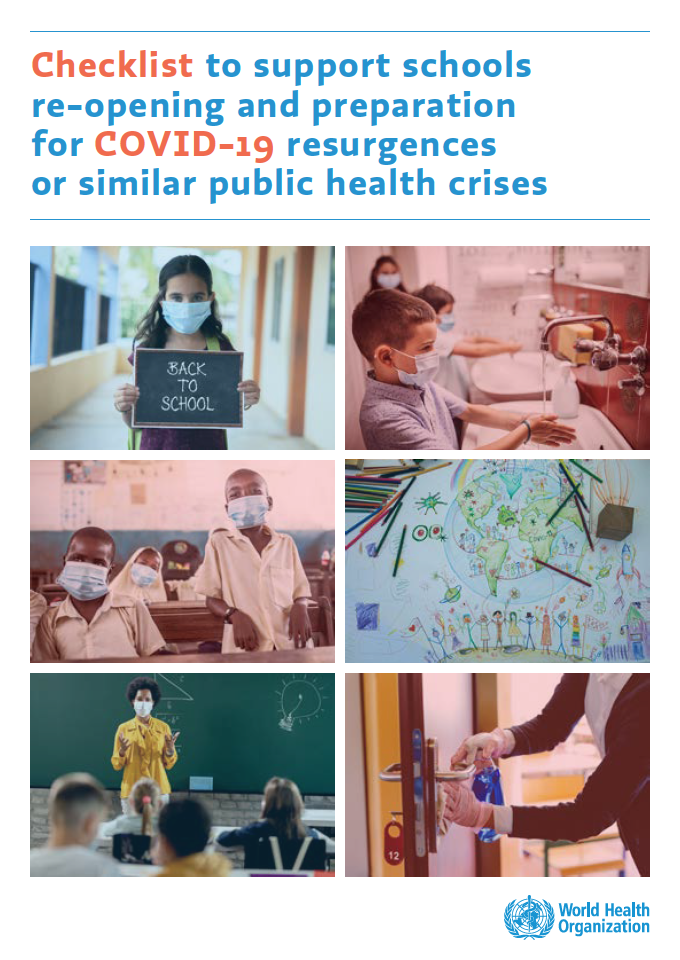
Author: World Health Organization
Audience: Policymakers, teachers, parents and caregivers.
Languages: English
Geographical Scope: Regional
The checklist was developed in accordance with the health-promoting schools principles and approaches.It highlights the importance of multi-level coordination (i.e. national, subnational and individual school levels) and both participatory and co-designed approaches among various stakeholders (e.g. school staff, teachers, students and parents). This approach aims to optimize compliance with public health and social measures based on social and cultural contexts, as described in Considerations for implementing and adjusting public health and social measures in the context of COVID-19.
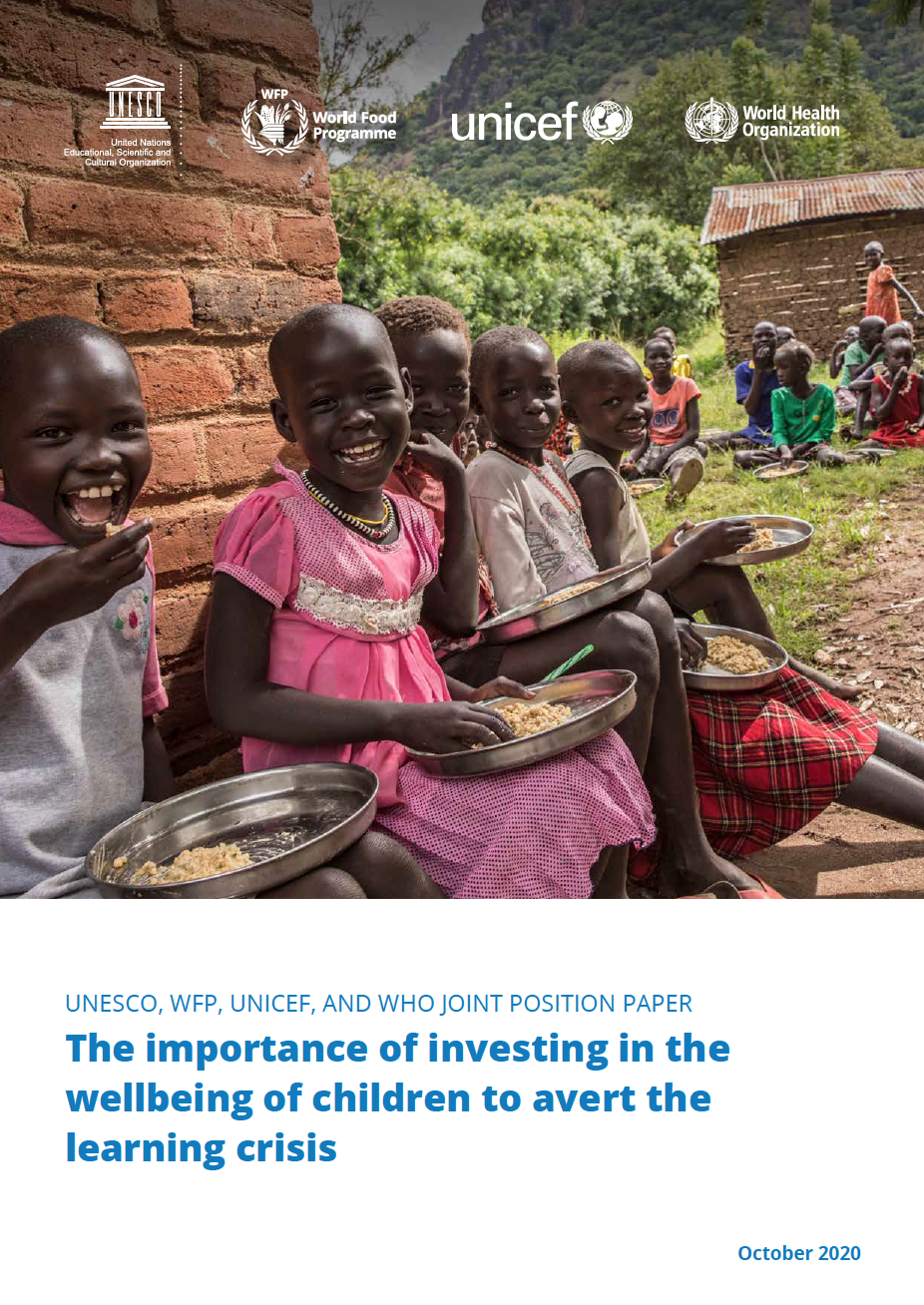
Author: UNESCO, UNICEF, WHO and WFP
Audience: Policymakers
Languages: English
Geographical Scope: Regional
This joint statement urges governments and the international community to uphold these commitments and to consider school health and nutrition programmes as a critical part of national response and recovery plans. You may find this helpful to advocate with government and other development partners to increase investment in these interventions.
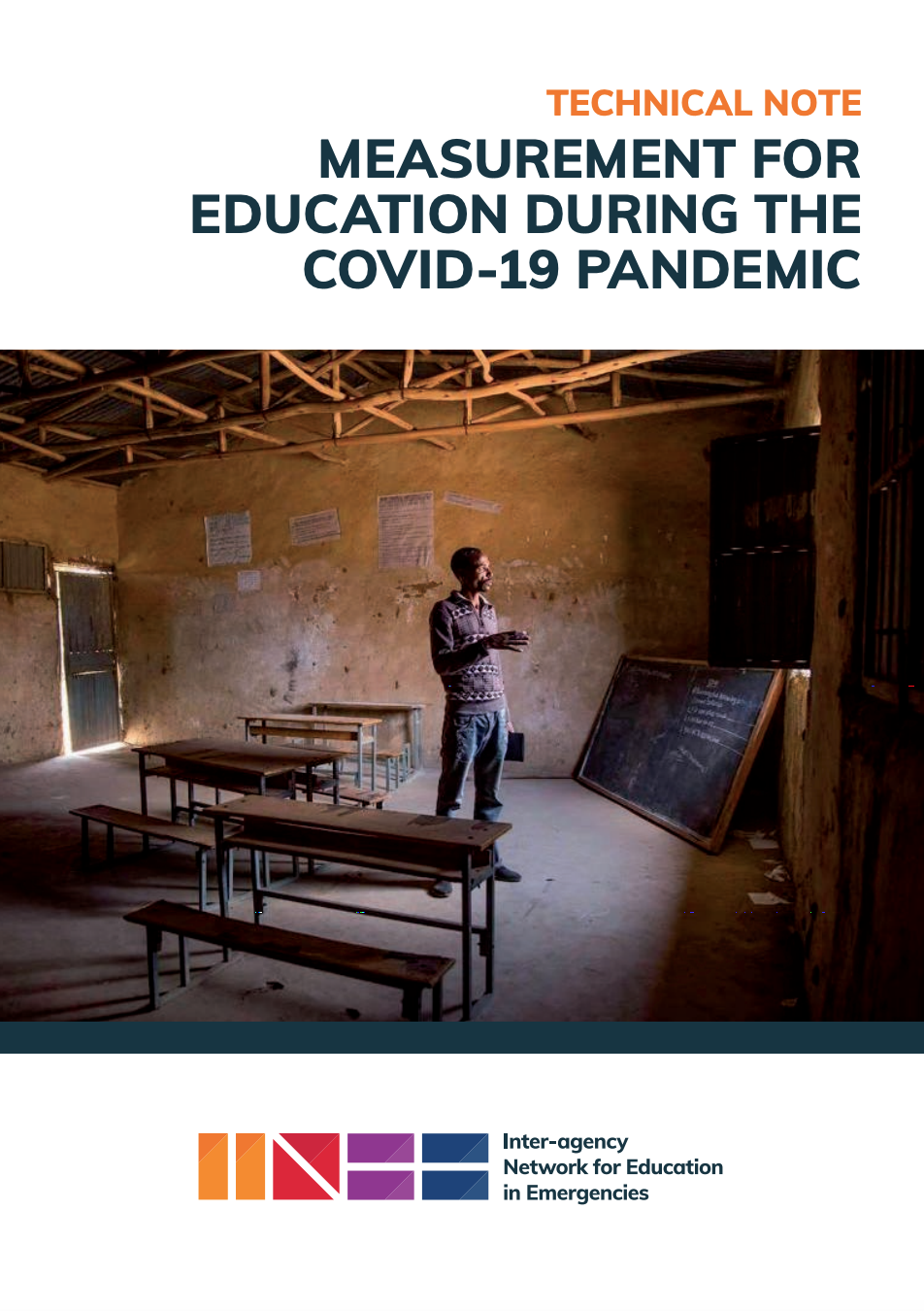
Author: Inter-agency Network for Education in Emergencies (INEE)
Audience: Policymakers
Languages: English
Geographical Scope: Regional
This targeted technical guidance has been drafted in response to monitoring, evaluation, and learning needs identified by INEE members as individuals and organizations continue their work to address the evolving learning and wellbeing needs of children, adolescents, youth, teachers, caregivers and other education personnel at this protracted stage of the response to the COVID-19 global public health crisis.
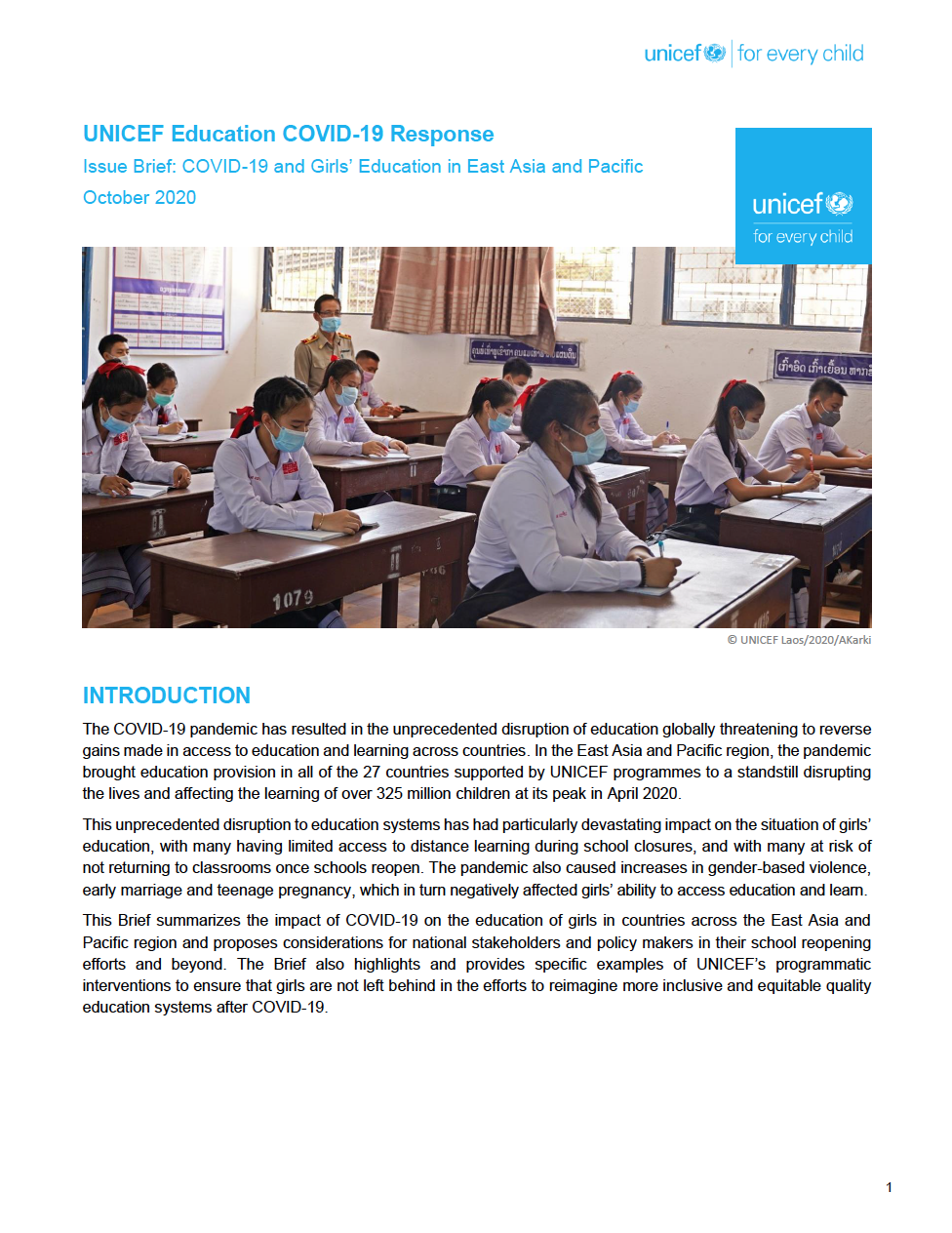
Author: UNESCO
Audience: Policymakers
Languages: English
Geographical Scope: East Asia and Pacific
This Brief summarizes the impact of COVID-19 on the education of girls in countries across the East Asia and Pacific(EAP) region and proposes considerations for national stakeholders and policy makers in their school reopening efforts and beyond. The Brief also provides specific examples of UNICEF’s programmatic interventions for ensuring girls are not left behind.
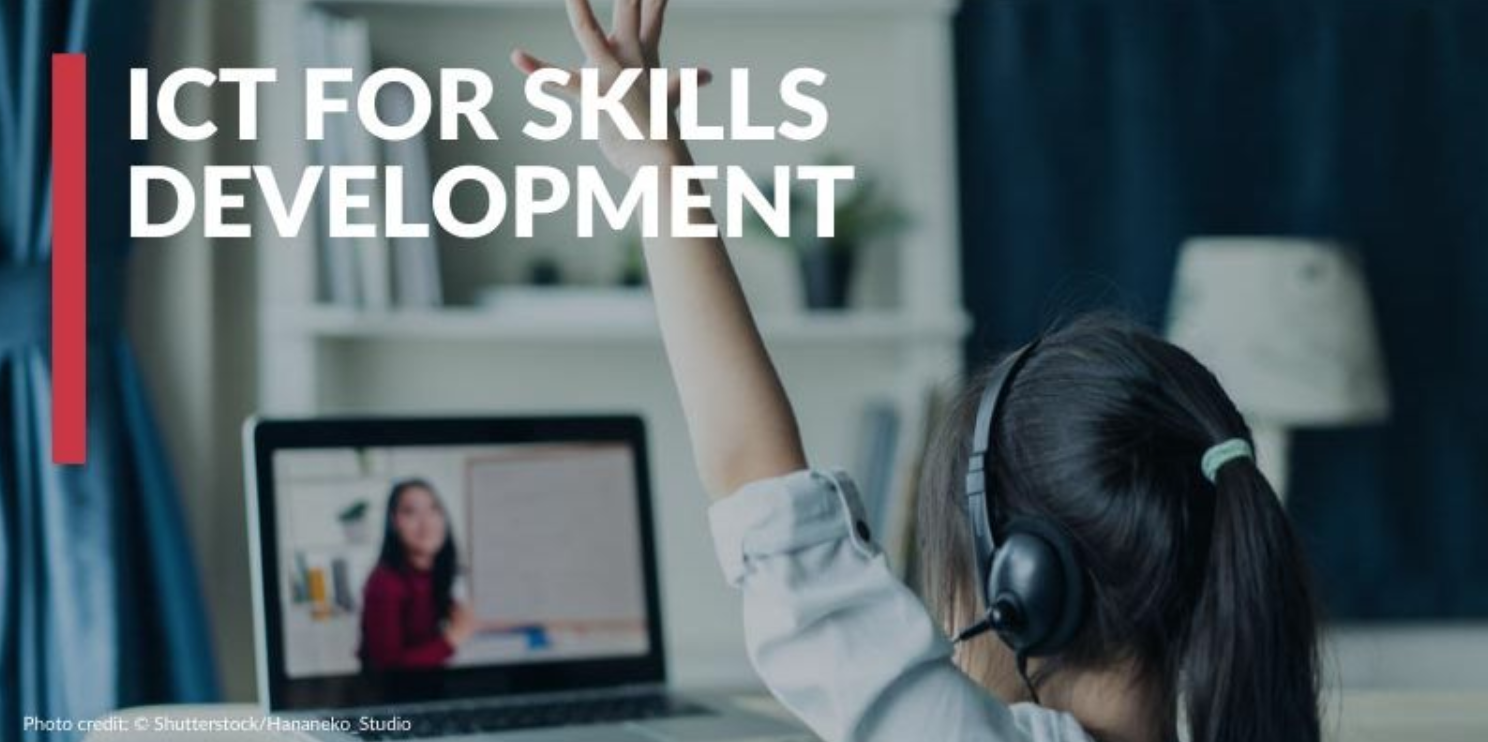
Author: UNESCO
Audience: Government officials, development partners, ICT experts from Central Asia and beyond, other education stakeholders or interested participants
Languages: English and Russian
Geographical Scope: Central Asia
This year’s CASIE (2020) is organized virtually in light of COVID-19, with the theme “ICT-enabled Skills Development in Rural and Remote Areas Impacted by COVID-19 in Central Asia and Beyond”. This is a particularly pertinent issue in Central Asia, as more than half of the region’s population (57.5%) resides in rural areas, according to the World Bank. The pandemic has dramatically affected the continuity of education, delivery, quality and skills development, and more so for learners and teachers in rural and remote areas.
- Webinar 1 (25 September 2020): ICT-enabled distance education opportunities for students and teachers in the context of COVID-19 (Eng),(Rus)
Presentations:
1. Overview of Central Asian countries’ experiences and responses to COVID-19, particularly in supporting teachers and students in rural/remote areas
Republic of Kazakhstan (Eng), (Rus)
Kyrgyz Republic (Eng), (Rus)
Republic of Tajikistan (Eng), (Rus)
Republic of Uzbekistan (Eng), (Rus)
2. Inter-government partnership to support national ICT in Education development in Central Asia (Mr Jaewon Cho, Programme Officer, KERIS) (Eng), (Rus)
3. Systematic teacher support & public-private partnerships for underprivileged students in Republic of Korea (Dr Sanghyun Jang, Director, Higher Education, Academic Research, International Cooperation Department, KERIS to present on behalf of the Korean Ministry of Education) (Eng), (Rus)
- Webinar 2 (7 October 2020): Open and distance education to promote learning and skills development throughout life (Eng), (Rus)
Presentations:
1. Addressing digital competence challenges through DigComp and related European digital competence frameworks and tools (Mr Alessandro Brolpito, Senior Specialist in Digital Skills and Learning, European Training Foundation) (Eng), (Rus)
2. Digital education to enable young potential in Kazakhstan (Ms Ji-Hyun Yoon, Samsung Electronics) (Eng), (Rus)
3. Skills development programme for rural populations in Kyrgyzstan, Tajikistan and Uzbekistan (Ms Dr. Thekla Kelbert, DVV International Regional Director for Central Asia) (Eng), (Rus)
- Webinar 3 (23 October 2020): Relevant educational content and OER for skills development.
Coming soon
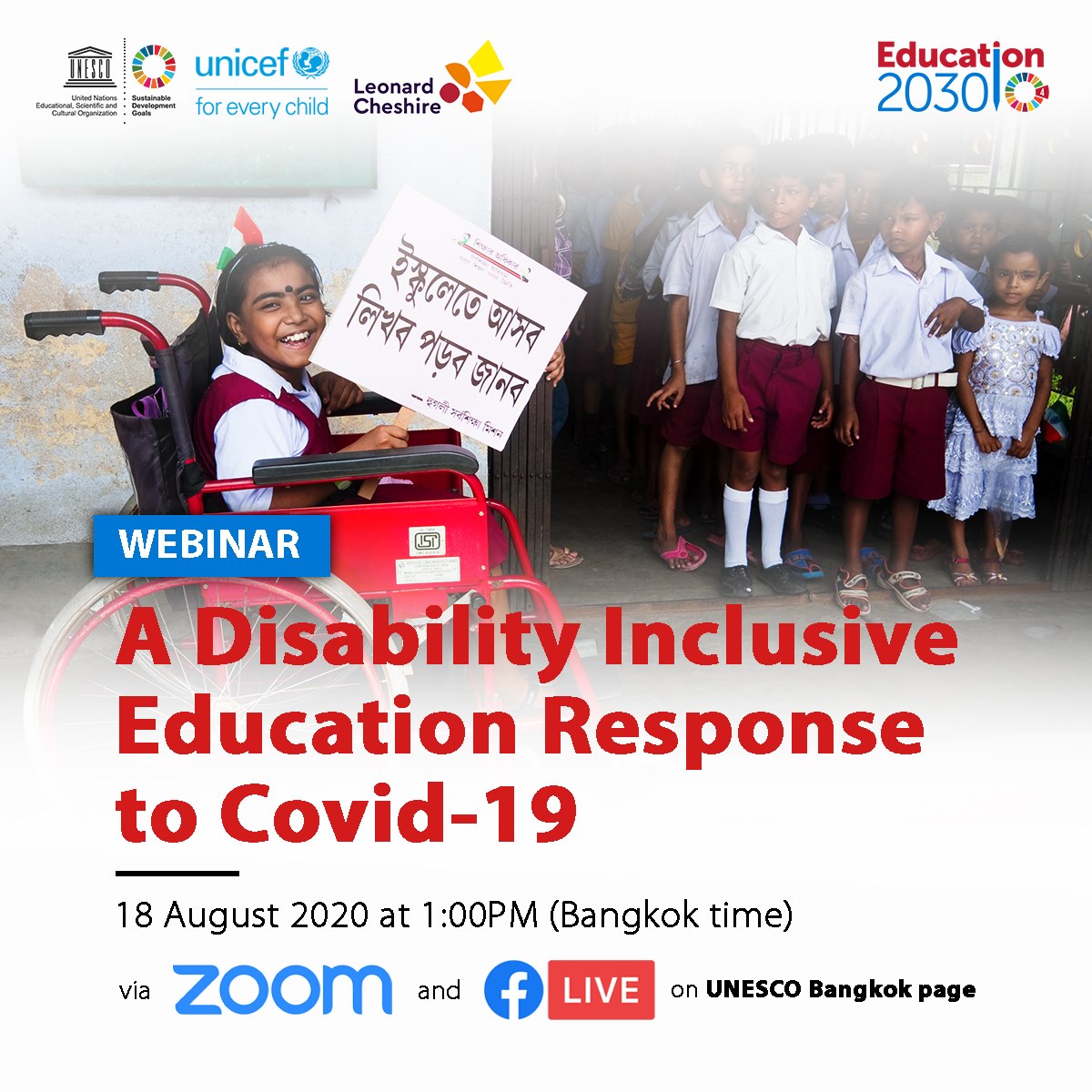
Author: UNESCO, UNICEF and Leonard Cheshire
Audience: Policymakers, Civil Society Organizations and Donors
Languages: English
Geographical Scope: Regional
This webinar aims to bring regional and national level education stakeholders including UNESCO, UNICEF, Civil Society Organisations, Organisations of Persons with Disabilities (OPDs), donor agencies together to understand how Covid-19 has impacted on the education of children with disabilities and discuss actions to ensure children with disabilities are able to return to school.
Resources
Webinar ppt - Leonard Cheshire
Webinar Questions and Responses – Teachers and teaching modalities
Webinar Questions and Responses – Monitoring, evaluations and data collection
Webinar Questions and Responses – Community Engagement
Other resources
Ensuring an inclusive return to school for children with disabilities
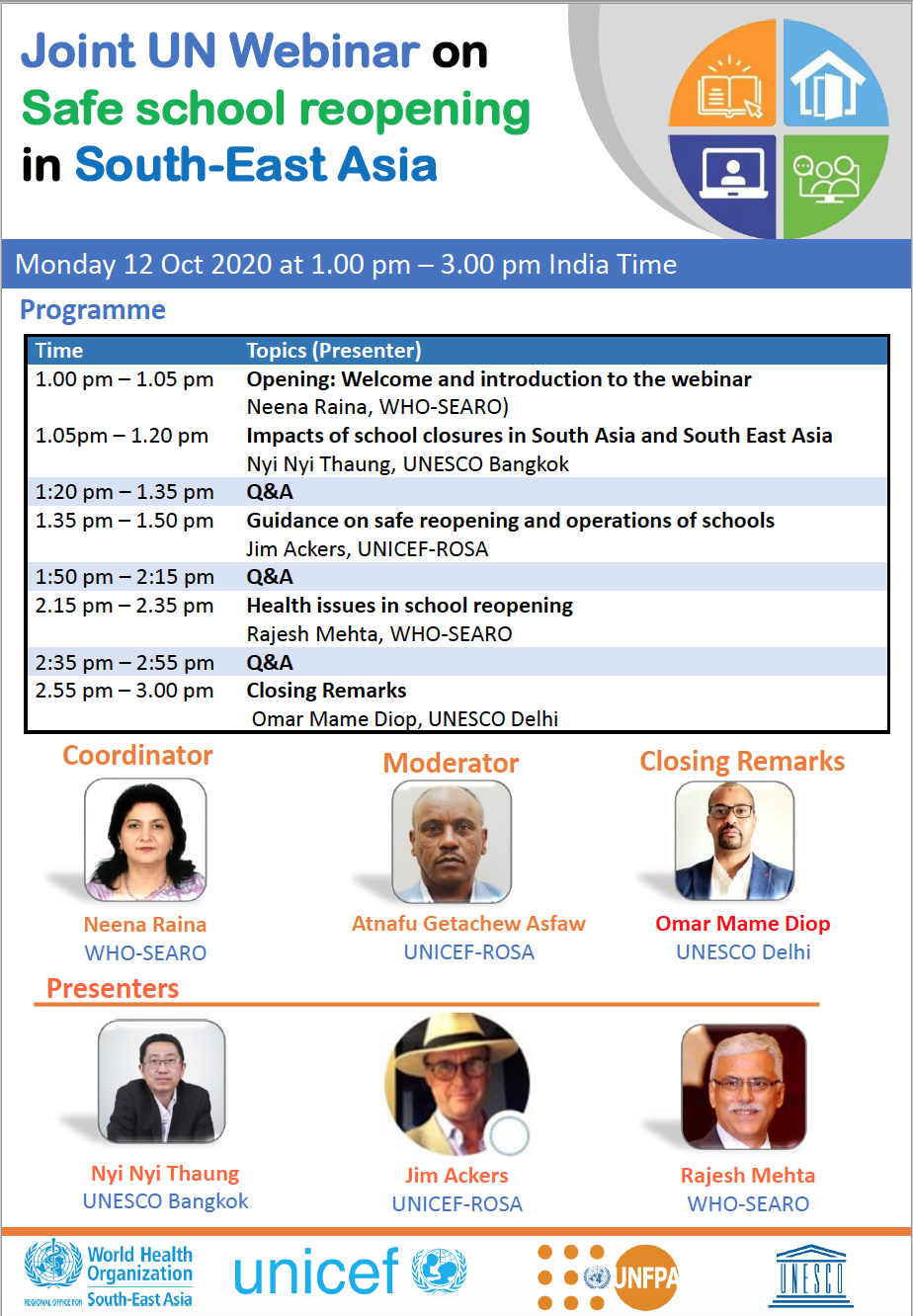
Author: UNESCO, UNICEF and WHO-SEARO
Audience: Policymakers
Languages: English
Geographical Scope: South-East Asia
The first in a series of joint UN webinars designed for representatives of Ministry of Education and Ministry of Health with the following objectives:
- Share knowledge and deliberate on available global guidelines for school re-opening and safe school operations
- Enhance collaboration between health and education stakeholders for this common agenda
- Facilitate experience-sharing among countries in South Asia and South-East Asia
Participants were from 12 countries across Asia and the Pacific region namely Afghanistan, Bangladesh, Bhutan, India, the Maldives, Nepal, Pakistan, Sri Lanka, Indonesia, Myanmar, Thailand and Timor-Leste.
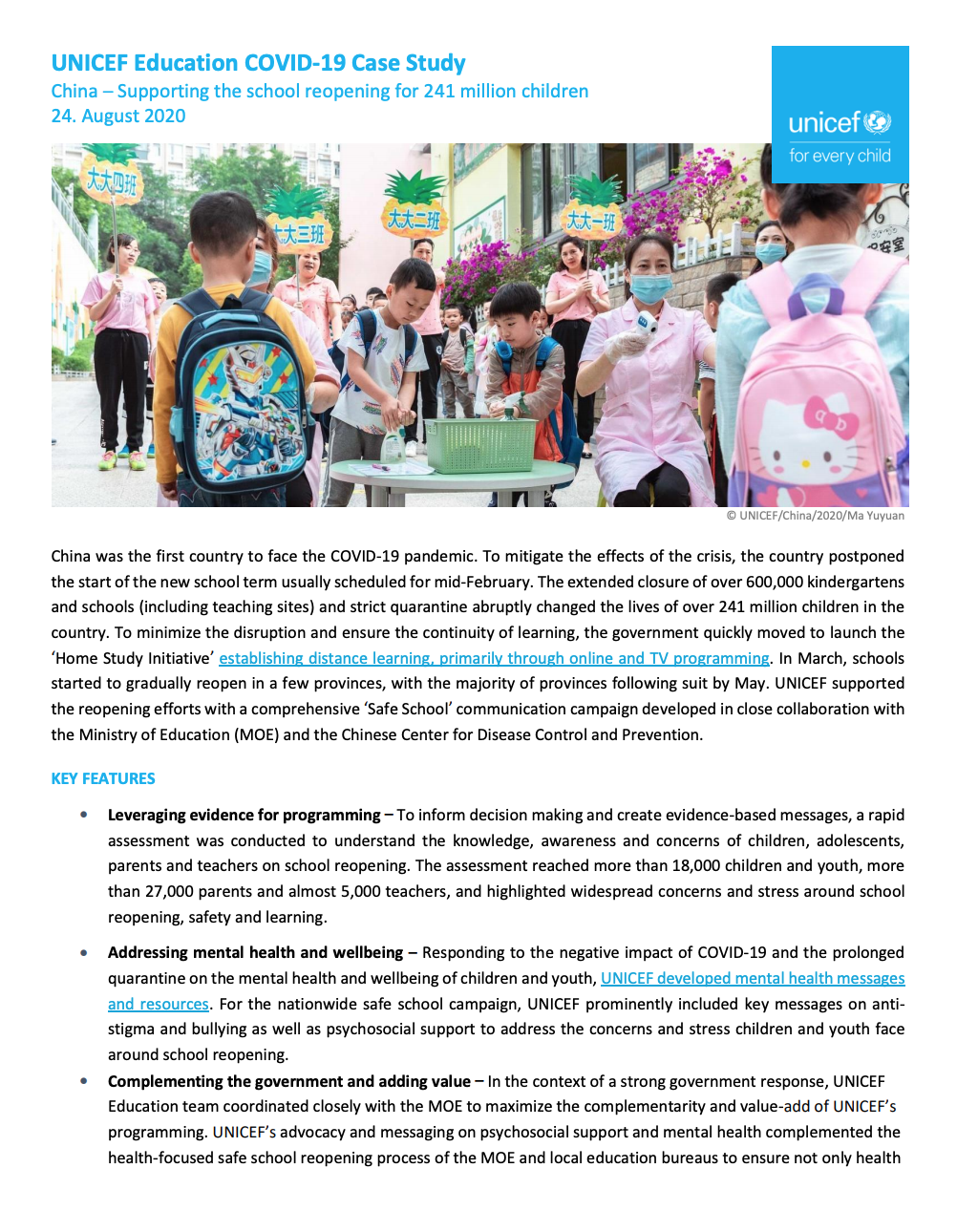
Author: UNICEF
Audience: Policymakers and General Public
Languages: English
Geographical Scope: China
UNICEF supported the reopening efforts with a comprehensive ‘Safe School’ communication campaign developed in close collaboration with the Ministry of Education (MOE) and the Chinese Center for Disease Control and Prevention.
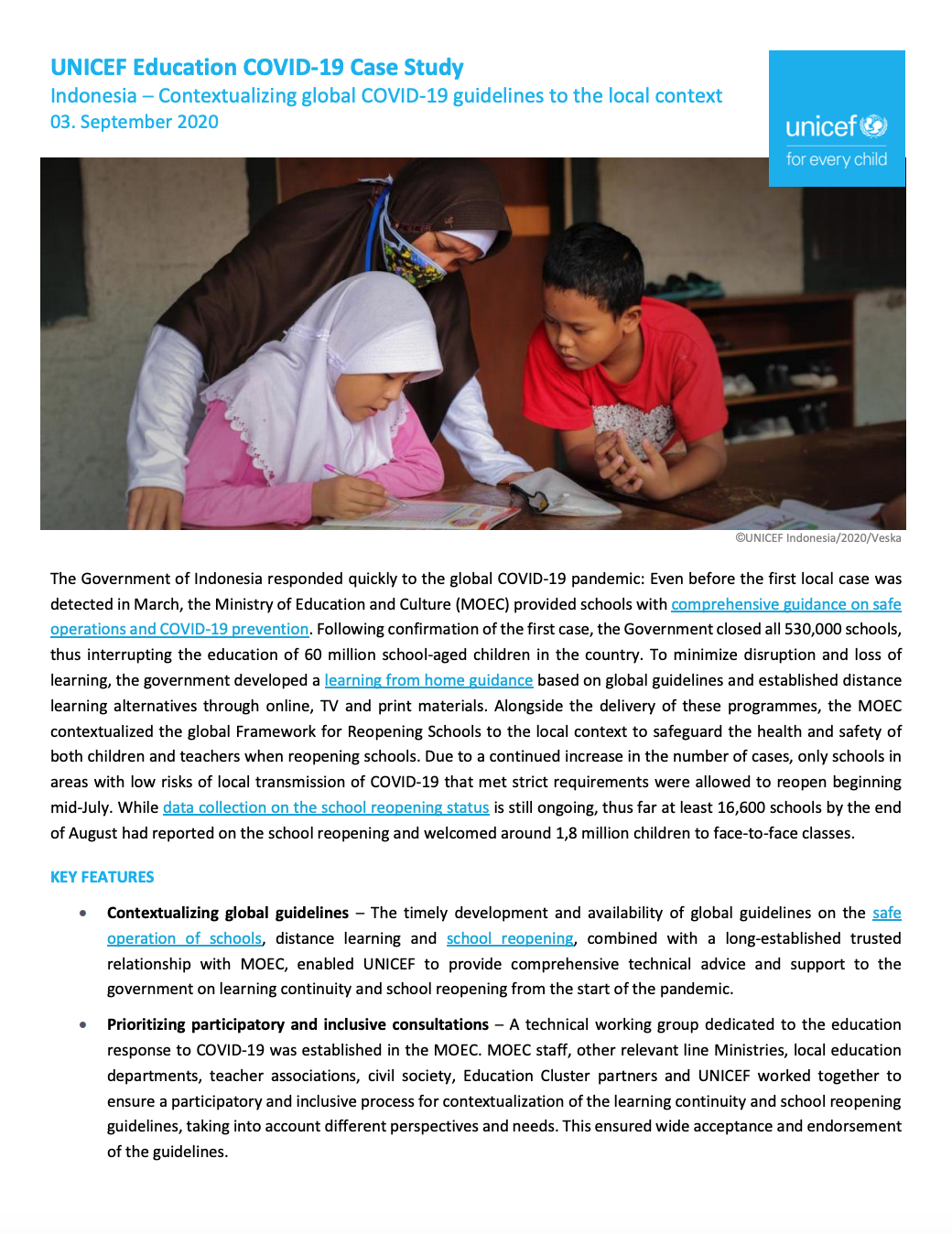
Author: UNICEF
Audience: Policymakers and General Public
Languages: English
Geographical Scope: Indonesia
The Government of Indonesia responded quickly to the global COVID-19 pandemic: Even before the first local case was detected in March, the Ministry of Education and Culture (MOEC) provided schools with comprehensive guidance on safe operations and COVID-19 prevention.
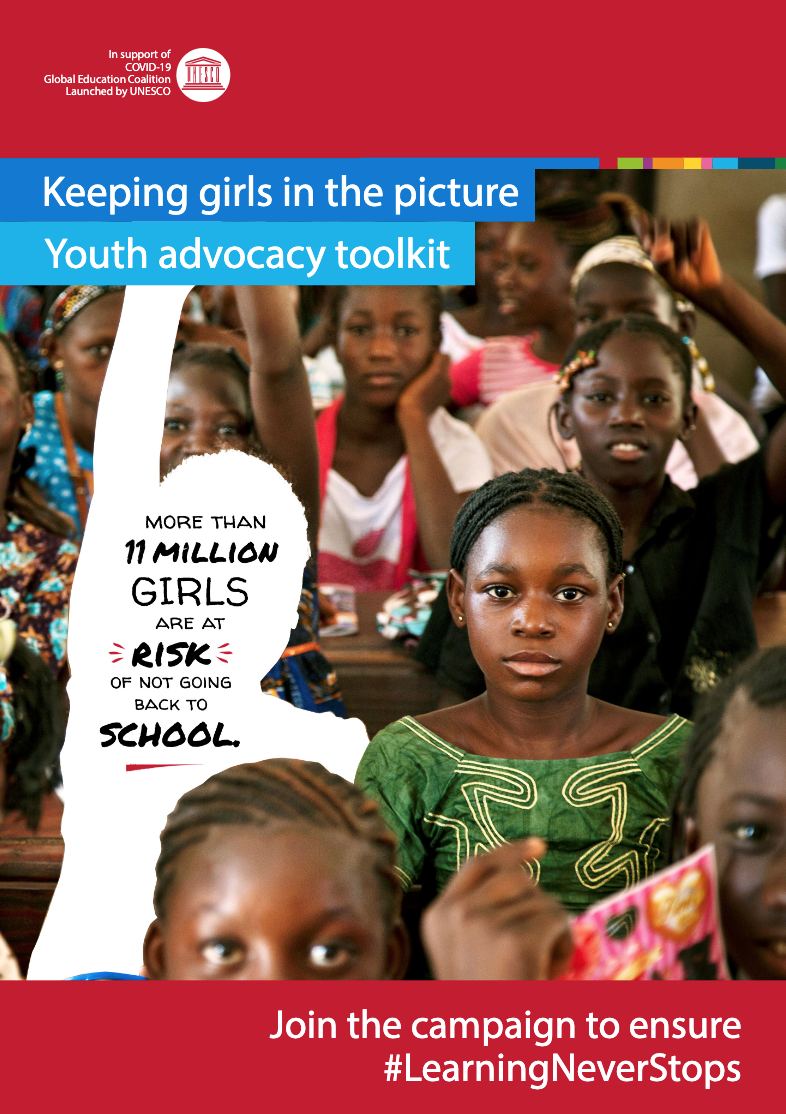
Author: UNESCO and Global Education Coalition
Audience: Policymakers
Languages: English
Geographical Scope: Regional
The campaign calls for efforts to safeguard progress made on girls’ education, ensure girls’ learning continuity during school closures, and promote girls’ safe return to school once these reopen. It also sheds light on the 130 million girls who were already out of school before the pandemic, and calls on the international community to urgently work together to guarantee their right to education.


